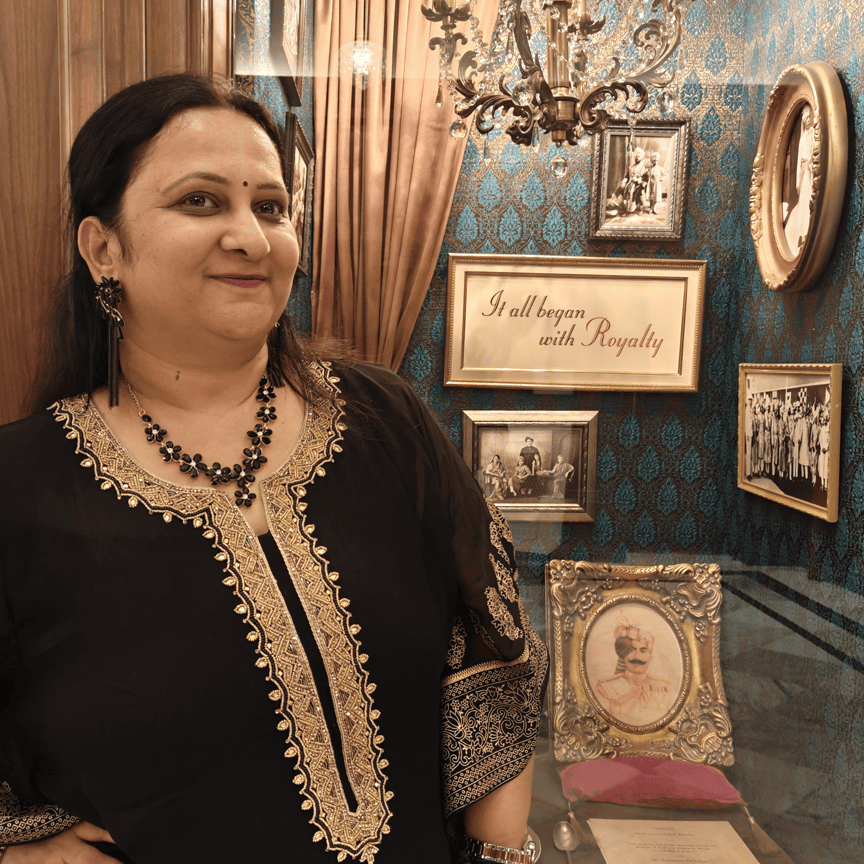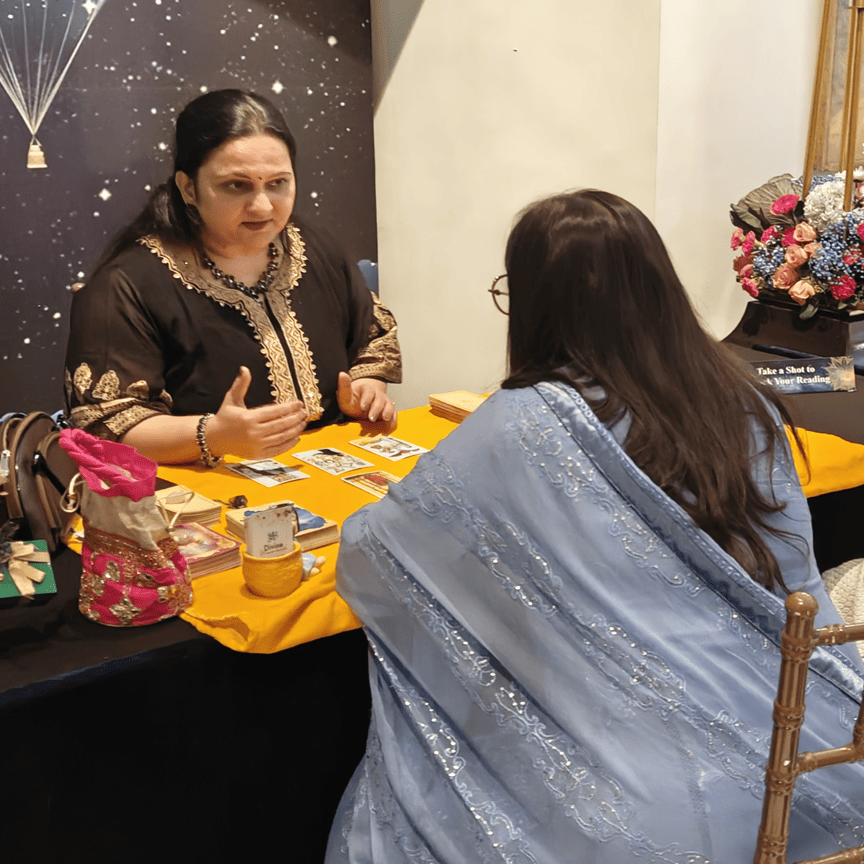A tarot reading gives you clarity and guidance about your life. It reflects your current energies, your subconscious thoughts, and the influences around you. Tarot doesn’t always give a direct “yes or no” answer; instead, it provides insightful direction, highlighting possible outcomes and helping you make empowered decisions. It tells you what you need to know rather than what you want to hear.
While tarot may not be a conventional “science,” it works on the principle of energy, intuition, and symbolism. Every card carries an archetype or universal symbol that speaks to the subconscious mind. Psychologists like Carl Jung have referred to these as archetypes of the collective unconscious. When read correctly, tarot becomes a bridge between your inner intuition and outer reality.
Yes, tarot can be very beneficial if done with the right intention. A tarot reading offers emotional support, mental clarity, and spiritual guidance. It helps you look at situations from a fresh perspective and encourages self-reflection. However, it should never be used for obsession, control, or fear.
 Tarot cards are based on ancient symbolism, archetypes, numerology, astrology, and spiritual wisdom. The traditional tarot deck contains 78 cards—22 Major Arcana (representing major life lessons) and 56 Minor Arcana (reflecting day-to-day experiences). Each card is a symbolic mirror of human life and universal truths.
Tarot cards are based on ancient symbolism, archetypes, numerology, astrology, and spiritual wisdom. The traditional tarot deck contains 78 cards—22 Major Arcana (representing major life lessons) and 56 Minor Arcana (reflecting day-to-day experiences). Each card is a symbolic mirror of human life and universal truths.
Tarot doesn’t “predict” the future in a fixed way. Instead, it shows you the most likely outcome based on your current choices, energy, and circumstances. Since free will always exists, you have the power to change your future by making different decisions. Tarot is not about fate—it’s about guidance and possibilities.
Tarot cards are not tied to any single religion. They originated in 14th-century Europe as playing cards and gradually evolved into spiritual tools. Today, people from different faiths use tarot for personal growth and guidance. Tarot is more about spiritual connection than religion.
 Yes, tarot readings can be very accurate when done by an experienced and intuitive reader. However, accuracy depends on the reader’s skill, your openness, and the clarity of the question. A true reading offers meaningful guidance rather than fortune-telling tricks.
Yes, tarot readings can be very accurate when done by an experienced and intuitive reader. However, accuracy depends on the reader’s skill, your openness, and the clarity of the question. A true reading offers meaningful guidance rather than fortune-telling tricks.
You should avoid tarot readings when you are extremely anxious, emotionally unstable, or addicted to seeking answers. Tarot should not be used repeatedly for the same question, nor for decisions that require professional advice (like medical or legal matters). It works best when approached with a calm, open mind.
Psychologically, tarot works with the subconscious mind. The imagery triggers inner thoughts, emotions, and hidden patterns that you may not be consciously aware of. In therapy, tarot is sometimes used as a tool for self-discovery, reflection, and emotional healing.
 Yes, you can trust a tarot reading if it comes from an ethical and experienced reader. A trustworthy tarot reader never instills fear or dependency but instead empowers you with guidance. Trust also comes from your own intuition—if the message resonates, it’s because your inner self recognizes the truth.
Yes, you can trust a tarot reading if it comes from an ethical and experienced reader. A trustworthy tarot reader never instills fear or dependency but instead empowers you with guidance. Trust also comes from your own intuition—if the message resonates, it’s because your inner self recognizes the truth.
Different religions interpret tarot differently. Some see it as forbidden, while others view it as a spiritual tool. Personally, I believe God speaks through many mediums, and tarot is one of them. It is not about worshipping cards but about using them as a divine channel for wisdom and healing.
Most tarot readers believe in energy, intuition, universal connection, and higher guidance. We see tarot as a mirror that reflects the truth already present within you. Many readers, including myself, believe in God and see tarot as a sacred way to deliver guidance to people.
 Yes, there is truth in tarot, but it’s not absolute destiny. Tarot reflects energies, patterns, and insights that are already influencing your life. The truth lies in how you interpret and act upon that guidance.
Yes, there is truth in tarot, but it’s not absolute destiny. Tarot reflects energies, patterns, and insights that are already influencing your life. The truth lies in how you interpret and act upon that guidance.
In a tarot reading, you ask a question or express an area of concern. I then shuffle and draw cards while connecting with your energy. Each card’s meaning is interpreted in the context of your situation. The session becomes a conversation between you, me, and the universe, offering clarity and solutions.
To learn tarot, start by familiarizing yourself with the 78 cards, their meanings, and symbolism. Practice daily card pulls, journal your interpretations, and trust your intuition. Over time, you will build a personal bond with the cards. Guidance from an experienced teacher can also help.
 Yes, tarot predictions can sometimes be inaccurate. This may happen if the question was unclear, the reader misinterpreted the cards, or if your choices change after the reading. Remember, tarot is not absolute—it shows the most probable direction, which can shift with free will.
Yes, tarot predictions can sometimes be inaccurate. This may happen if the question was unclear, the reader misinterpreted the cards, or if your choices change after the reading. Remember, tarot is not absolute—it shows the most probable direction, which can shift with free will.
Tarot originated in 14th-century Italy as playing cards. By the 18th century, mystics and occultists began using tarot for divination. Its origins are a blend of European history, symbolism, and spiritual evolution.
In Islam, divination practices like tarot are considered haram (forbidden). However, interpretations may vary depending on cultural and personal beliefs. I always advise people to respect their faith first.
Tarot is not originally from Hinduism, but many Hindus do practice or consult tarot readers. Since Hindu philosophy embraces spirituality, karma, and energy, many people find tarot to be in harmony with their beliefs.
 Tarot is used by spiritual seekers, healers, psychologists, and everyday people who want clarity in their lives. Celebrities, business owners, and students alike come for guidance. Anyone with an open mind can benefit from tarot.
Tarot is used by spiritual seekers, healers, psychologists, and everyday people who want clarity in their lives. Celebrities, business owners, and students alike come for guidance. Anyone with an open mind can benefit from tarot.
Yes, absolutely. Believing in God and using tarot are not contradictory. Tarot is not about worshipping cards—it’s about seeking divine wisdom and guidance through a symbolic tool.
A standard tarot deck has 78 cards: 22 Major Arcana and 56 Minor Arcana. Each card carries unique symbolism, messages, and life lessons.
 Tarot is not a hard science, but it has a psychological and symbolic basis. Modern psychology recognizes the therapeutic and introspective benefits of tarot. It’s more of a spiritual art than a measurable science.
Tarot is not a hard science, but it has a psychological and symbolic basis. Modern psychology recognizes the therapeutic and introspective benefits of tarot. It’s more of a spiritual art than a measurable science.
AI tarot readings can provide general meanings of cards but lack the intuitive, human connection that a true tarot reader offers. While technology can assist, the accuracy of a reading comes from intuition, empathy, and energy—qualities AI cannot fully replicate.
The disadvantages come only if tarot is misused or misunderstood. Over-dependence, fear-based interpretations, or seeking readings for every small decision can create confusion. The key is to use tarot as guidance, not a crutch.
After a reading, take time to reflect on the guidance received. Write down the key points, meditate on them, and apply them practically in your life. Trust your intuition and allow the universe to unfold in its time.
Some people choose not to believe in tarot because of religious, cultural, or scientific reasons. And that is okay. Tarot is a matter of personal belief and experience. If it doesn’t resonate with you, it’s best not to force it.